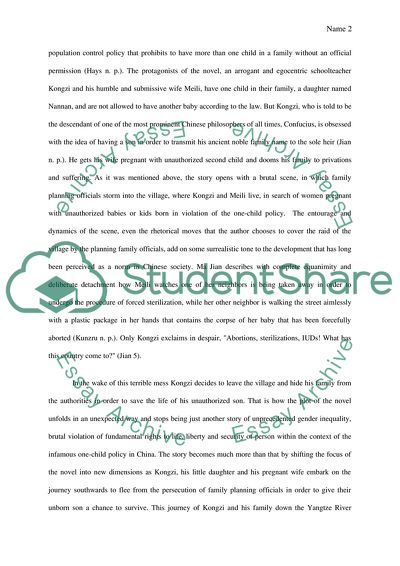The Dark Road by Ma Jian and Negative Effects of Rapid Economic Book Report/Review Example | Topics and Well Written Essays - 1750 words. https://studentshare.org/literature/1870857-pick-one-by-yourself
The Dark Road by Ma Jian and Negative Effects of Rapid Economic Book Report/Review Example | Topics and Well Written Essays - 1750 Words. https://studentshare.org/literature/1870857-pick-one-by-yourself.


